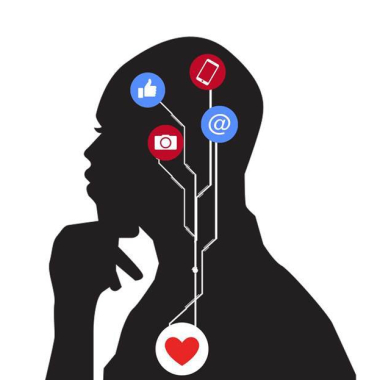Sara Preston
Senior Young People’s Participation Officer [Scotland]
Beat [Eating Disorders Association] – www.b-eat.co.uk
Focus area of practical/ clinical work/ research
My role involves co-ordination of Beat’s youth projects across Scotland and development of a sustainable model for engagement for those with personal experience of eating disorders, in sharing their story to educate, inform and provide hope for others, across the spectrum of members of the public, Scottish Government, health professionals, clinicians, teachers and those presently affected. I head up management of the Beat Ambassador volunteer scheme, work with treatment services, health professionals policy makers, education institutions and community organisations, alongside engaging with regional media, presenting at conferences and assisting in training of GPs. In 2015, the Scotland Ambassador project and volunteer team were recognised with regional and national awards, receiving an Inspiring Volunteering Achievement Award 2015 through Edinburgh City Council and winning the Volunteer Award at the National Scottish Health Award 2015 run by Scottish Government and NHS Scotland, marking the Programme having greatest positive impact on patients, carers and clinicians in Scotland that year.
Publications/ Projects/ Activities
- Winston Churchill Fellow [2016-17] – 2 month international research Fellowship in North America investigating best practice, evidence based eating disorder treatment, education programmes and stigma reduction initiatives.
- Elected Member – Royal College of Psychiatrists Faculty for Eating Disorders
- Elected Member – Regional Scottish CAMHS Eating Disorders Steering Group
- Beat Member Representative – Scottish Parliament CPG for Mental Health
- Committee Member – Scottish Eating Disorders Interest Group [SEDIG]
- Consultant & Professional Member – See Me: Children & Young People’s Programme & Mental Health Steering Group
- Publication – Book Chapter: Hulme, J; Preston, S (2017). The Role Model: Introducing Your Pupils to a Powerful New Kind of Educator. In: Hulme, J, The School of Wellbeing – 12 Extraordinary Projects Promoting Children’s Mental Health and Happiness. London: Jessica Kingsley Publishers. p99-112.
Motivation/ Inspiration/ Mission
Eating Disorders: I am hugely passionate about eating disorders awareness, community activism projects and ensuring adequate treatment provision for individuals, carers and their family who are facing eating disorders – coming from a place of lived experience, volunteering and now working in field – I hope to see positive progress for eating disorders research and treatment within my lifetime. In my drive for improved recognition and support for those affected by eating disorders, I endeavour not to speak for individuals – but rather serve as a medium and amplifier – for their voices to be heard.
Body Image & Social Media: In recent years society has undergone an increasing digital revolution, with regards to the way we interact with friends, members of the public and consumer outlets. Media and social media are powerful and can serve to be a positive influence, however they can also be problematic in delivering unrealistic representations and ideals to individuals who may lack the media literacy or personal fortitude to deconstruct imagery from fact. This has developed a culture of communication favouring imagery and aesthetic visual representations as a means of discourse, rather than face to face meetings or verbal contact. Young people today grow up with social media – it forms part of their everyday – is omnipotent and exponentially growing. Since the technological rise of networking platforms in recent years, social media has become more prominent within the narrative of those who are affected by, or have experienced an eating disorder. Individuals are faced with a plethora of pictorial onslaughts, in forums that are ubiquitous and pervading daily life. The impact of this ever present digital representation is worrisome, yet at the same time is still not fully understand, with regards to the cost benefit analysis between improved connections/social interaction and the negative connotations regarding critical comparison, self-esteem and attainment. Eating disorders are complex mental illnesses with no one sole cause, and as such we can’t directly attribute social media or trends as causation for eating disorder presentation. However, we do know that such powerful influences and unrealistic representations can impact body image and self-esteem, which are known component factors in eating disorder development.
I am interested to engage in research which may provide a clearer picture in relation to the potential impact of social media upon body image and self-esteem – alongside exploring the prospective further repercussions in terms of eating disorders – both in the context of perpetuating influences, maintaining factors and also barriers to full recovery [S.Preston, 2017].
Contact details
Work Email: preston@b-eat.co.uk
Personal Email: sarpreston@outlook.com
Twitter: @Sa_raPreston
Mobile: 07789558369
LinkedIn: https://uk.linkedin.com/in/sarapreston

